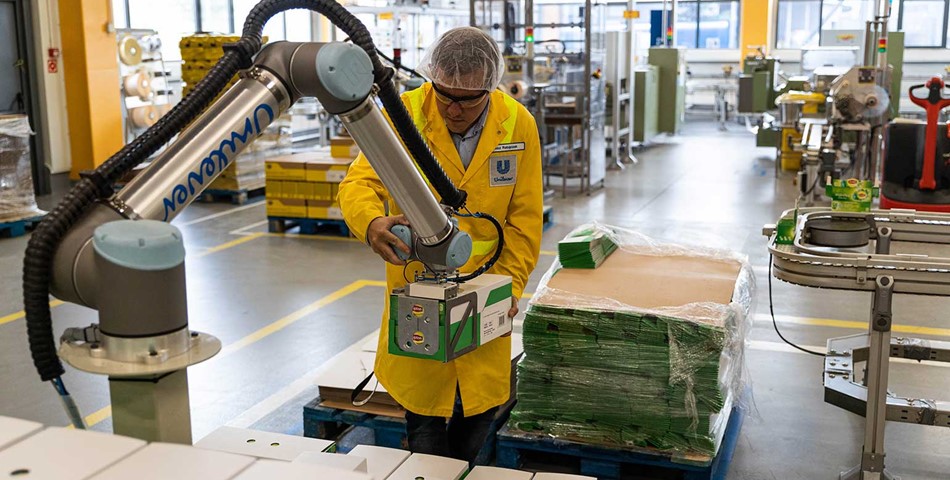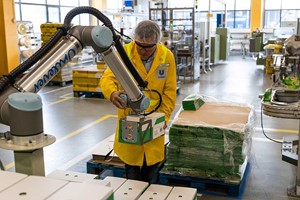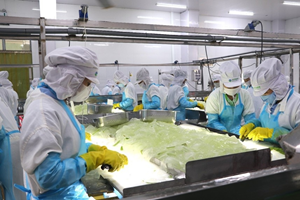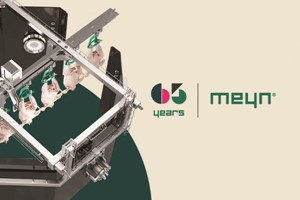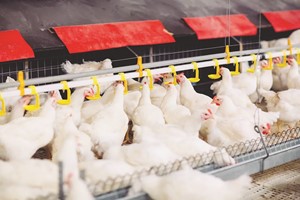The dynamic landscape of the food processing industry is undergoing a transformative shift, driven by the dexterous hands of collaborative robots, or cobots. These versatile machines are not here to usurp human workers, but rather to collaborate alongside them, augmenting capabilities and streamlining workflows. This synergistic partnership is yielding significant benefits in terms of efficiency, safety, and ultimately, the quality of food reaching our tables.
Precise Picking and Placement:
Imagine a scenario where delicate fruits, like strawberries, are meticulously selected, one by one, based on their ripeness and appearance. Cobots equipped with advanced vision systems make this a reality. Their keen sensors can discern the subtlest color and size variations, ensuring only the finest produce makes it to the final product.
Similarly, in meat processing facilities, cobots can handle heavy cuts of meat with remarkable precision and dexterity. Their specialized grippers navigate slabs of beef or pork with ease, minimizing the risk of injuries to human workers and ensuring consistent portioning.
Packaging Perfection:
Cobots excel at repetitive tasks, freeing human workers for more strategic roles. Their tireless movements and programmable routines make them ideal for packaging applications. Picture them flawlessly placing yogurt cups into cartons, arranging pre-made salads in their containers, or stacking cookie boxes with unwavering accuracy.
Vision systems further enhance their capabilities. Cobots can identify and sort cookies based on size and color, ensuring visually appealing and uniform packaging. This level of automation not only streamlines workflows but also minimizes waste and product inconsistencies.
Enhanced Quality Control:
Beyond physical prowess, cobots can act as vigilant guardians of food quality. Their integrated sensors scan fruits and vegetables for even the slightest imperfections, preventing blemishes from reaching consumers. In meat processing, cobots can be programmed to identify potential contaminants or signs of spoilage, safeguarding food safety and minimizing the risk of recalls.
Benefits Beyond Efficiency:
The integration of cobots into food processing transcends mere efficiency gains. These collaborative robots offer a multitude of benefits, including:
- Improved Worker Safety: Cobots take over physically demanding or hazardous tasks, reducing the risk of injuries for human workers.
- Enhanced Food Quality: Precise automation and consistent handling minimize product inconsistencies and ensure high-quality food reaches consumers.
- Reduced Food Waste: Improved sorting and processing techniques minimize waste, benefiting both the environment and the industry.
The Future of Food with Cobots:
Cobots are not merely a technological trend; they represent a paradigm shift in the food processing industry. As technology advances, we can expect even more innovative applications, from AI-powered recipe creation to automated kitchen assistants. Cobots are not replacing human chefs, but rather becoming valuable partners, paving the way for a safer, more efficient, and ultimately, tastier food system.
So, the next time you enjoy a perfectly grilled steak or savor a juicy apple, remember, there might be a cobot behind the scenes, contributing its precise movements and vigilant sensors to ensure every step of the food journey is optimized for quality and safety.




